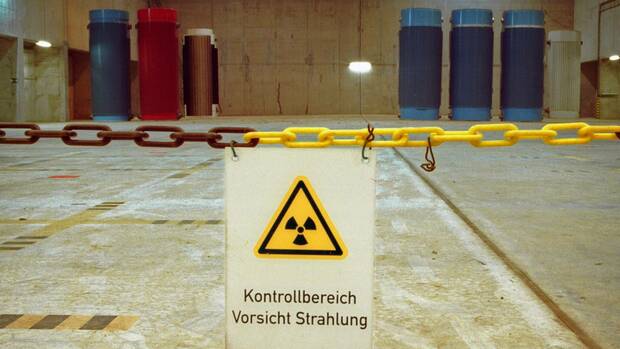Castor container with fuel elements – interim storage facility in Gorleben.
(Photo: imago images/photothek)
Dusseldorf Germany is phasing out nuclear power. Really now. Large sections of the population have fought for this for decades. The enthusiasm was huge at the beginning of the 1950s when it was finally possible to produce electricity from nuclear energy. At that time there was still talk of nuclear cars and mini power plants in the basements of single-family homes.
Then, a few decades later, the disillusionment: Chernobyl, radioactive waste, Fukushima. Nuclear energy is by far the most risky and one of the most expensive technologies for generating energy – that much is certain.
But there are now ideas that promise nuclear energy with almost no radioactive waste. And researchers who have long been investigating new ways of using nuclear energy. The keywords are fusion power or small modular reactors. Will they ever break through? Hard to say.
However, science has proven more than once that basic research alone can often produce groundbreaking discoveries. The discovery of giant magnetoresistance, for example, led to the development of terabyte-capacity hard drives. The laser is also a by-product of basic research.
The shutdown of the last three nuclear power plants in Germany must therefore not mean the end of nuclear research in this country. And, no, please don’t take this as an appeal for the continued operation of the remaining power plants.
Keep know-how in the country
According to Economics Minister Robert Habeck, while the end of nuclear power is “irreversible”, billions are pouring into research into new nuclear technologies in other countries. In Germany, too, the Federal Ministry of Education and Research only set up its own expert group on the subject of fusion energy at the end of last year. Germany is also still involved via the European Union (EU) in the first experimental model of a nuclear fusion reactor (Iter), which has been under construction since 2007.
If it is possible to keep the know-how for dealing with nuclear substances in the country, the nuclear phase-out in Germany does not necessarily have to mean the end of nuclear innovations. For this, however, chairs would have to be filled again, training funded and promising start-ups financially supported.
Who knows, maybe the dream of fusion energy will come true at some point – probably in 30 years. Perhaps the research and development of this idea also offers completely different new possibilities.
More: “The end of a major technology in Germany” – These are the consequences of the Energie-Sonderweg
